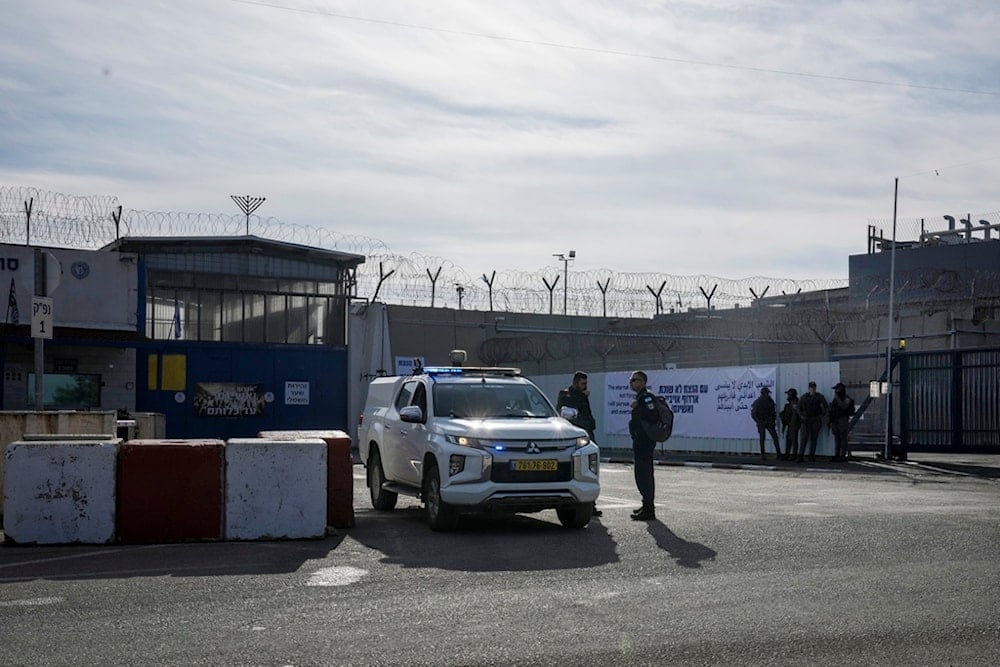Israeli regime releases Sanaa Daqqa, puts her on house arrest
An Israeli court orders house arrest for Sanaa Salama Daqqa, widow of martyr Walid Daqqa, after arrest over social media posts.
-

Israeli soldiers stand outside the Ofer military prison near occupied al-Quds, occupied Palestine, on Saturday, January 25, 2025. (AP)
An Israeli central court in Haifa ordered the release of Sanaa Salama Daqqa, the wife of martyred Palestinian prisoner Walid Daqqa, placing her under house arrest for five days, according to legal sources on Tuesday.
Daqqa had been detained by the Israeli occupation forces on May 29 while crossing a military checkpoint on her way back from Ramallah to the occupied Palestinian territories of 1948. She was traveling with her daughter, Milad Walid Daqqa, and another child at the time.
Earlier, a magistrate court in Al-Khudayra extended her detention under the pretext of completing an investigation into social media posts.
The Israeli occupation police interrogated Daqqa on allegations that her online activity constituted “incitement to terrorism” and expressed sympathy for acts of resistance, charges based solely on the content of her social media posts, according to police claims.
Daqqa subjected to 7 court sessions
Over the course of her detention, Daqqa was subjected to seven court sessions. The Israeli prosecution consistently demanded the extension of her arrest, citing ongoing investigations. However, the appeals court in Haifa rejected the prosecution’s request and ruled for her release under temporary house arrest.
The case has drawn attention not only because of Daqqa’s status as the widow of prominent political prisoner Walid Daqqa, who died in April due to medical negligence while incarcerated, but also due to political pressure surrounding her detention.
Israeli far-right Police Minister Itamar Ben-Gvir had openly called for Daqqa’s expulsion from the occupied territories, intensifying concerns about the political motives behind her arrest.
Sanaa Salameh is the widow of Walid Daqqa, a prominent figure in the Palestinian prisoners' movement, who passed away in April of last year. He had spent 38 years in Israeli prisons, enduring continuous systematic torture, medical neglect, and harsh punitive conditions.
Despite his death, the occupation authorities continue to withhold his body in refrigerated storage, refusing to release it to his family, a move widely criticized by human rights organizations as a violation of basic human dignity.

 3 Min Read
3 Min Read










